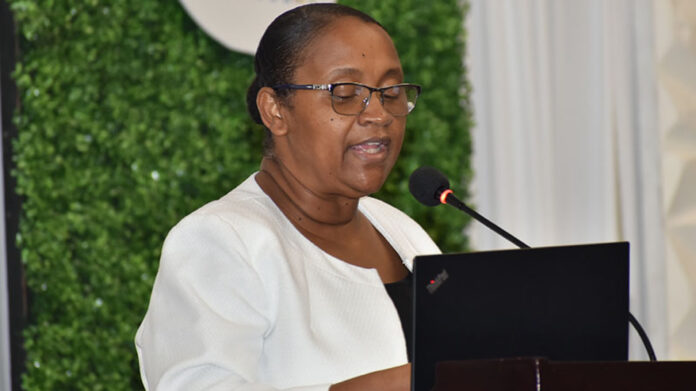There was an increase in the overall performance of students who sat exams administered by the Caribbean Examination Council (CXC).
Dr Nicole Manning, Director of Operations and Examinations at CXC, provided an overview at the preliminary launch of the 2022 results on Monday.
For several of the subject areas in both the Caribbean Advanced Proficiency Examination (CAPE) and the Caribbean Secondary Education Certificate (CSEC) exams, there were slight increases in passes in either Grade One, Two or Three.
This is welcome news for the officials as the region continues to regroup following the early stages of the Covid-19 pandemic.
Where registration was concerned, although Dr Manning did not provide specific figures, she did mention that there was a reduction in the number of absentees as compared to previous years for CAPE and CSEC.
Last year, candidate entries for CAPE totalled 30,398, while the 2019 figure was 30,944. For subject entries in 2020, the figure was 119,356 while in 2019 it was 121,595.
“For registration this year, we saw a decline in relation to the candidates’ registration,particularly for CAPE in relation to the subject entries where we also saw a decline.
“I must say that, heartening for us, is that where we saw an increase in terms of the number of candidates presenting themselves for examinations, which means that we saw a reduction in absenteeism and that is a very good signal for us because it tells us that there is a light at the end of the tunnel and some level returning to normalcy.
“For CSEC, we also saw a reduction for the candidate entries but we saw an increase in the subject entries,” Dr Manning explained.
Absentees are candidates who for whatever reason did not show up for their exams.
She added that despite the few setbacks, the local registrars in the different territories should be commended for their work.
While that commendation was given, Dr Manning did mention that there were also a few hiccups in the submission of School Based Assessments (SBAs) as there was a 50 percent reduction in submissions despite there being a two-week deadline extension.
She is encouraging the territories to look into this matter and find avenues to encourage and assist the candidates so that they can submit all units.
The issue of cheating was also a major problem for the regional examination body.
“We did see a few irregularities and hardships. Now, the irregularities are where you would see the issues of cheating, collusion and cell phone usage. This is not something that you would want to happen, but it happens and the only thing we can do at this point is to encourage our candidates to take note of what is not to be done.
“I must say that the cell phone usage was maybe 90 percent or 80 percent of what may have happened,” she added.
The use of phones during the exams is prohibited although candidates can have the devices on their person but switched off.
Many invigilators advise candidates to leave their phones in their bags before entering the room to prevent any mishaps.
Dr Manning is advising the regional educational bodies to “practice sitting exams without the cellphones” during assessments so that they can be accustomed to not having these devices on their person during the CXC exams themselves.
Although the official ceremony was held for the launch of this year’s results, candidates were not able to access the online platform to get their results until Monday evening.

